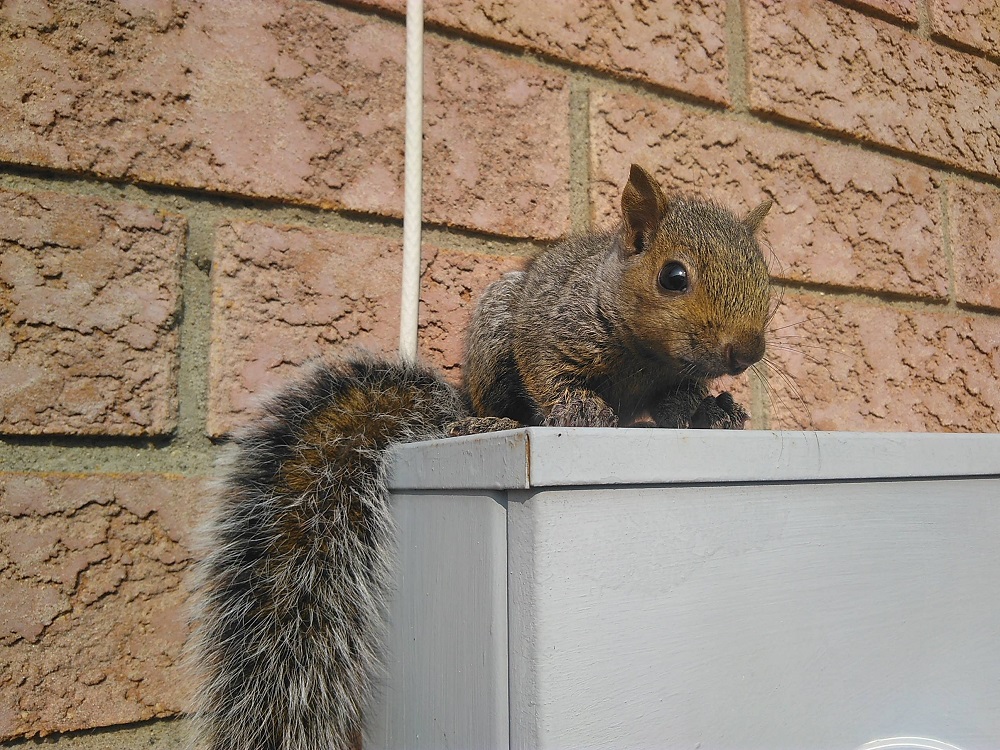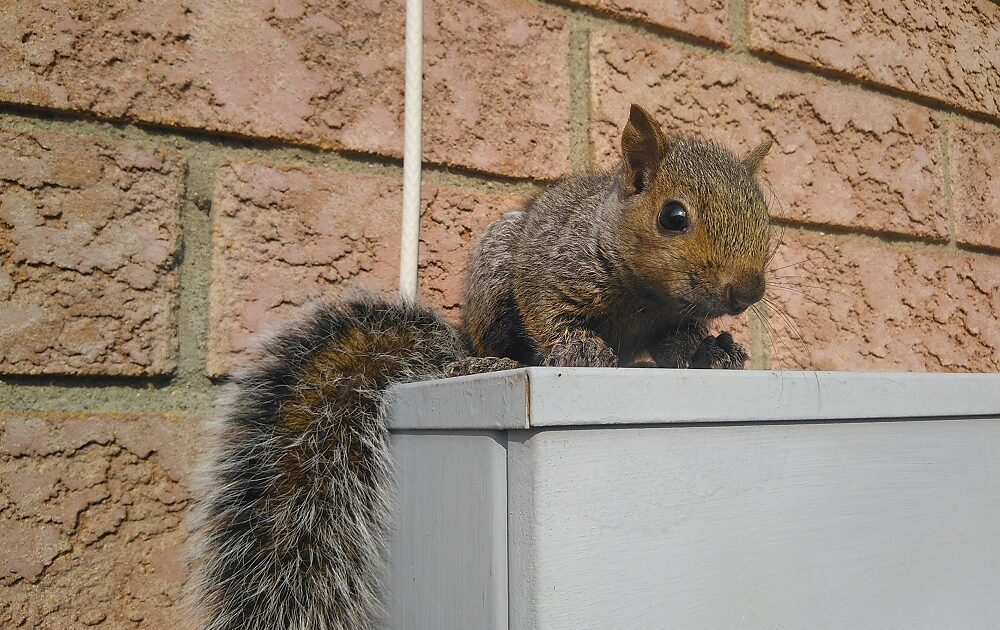We have all seen the viral videos of people getting so bored and lonely during the lockdown that they started befriending squirrels in their backyards. As cute as these images were, did feeding the squirrels help them? Or were the videographers actually killing the animals with kindness? Our Skedaddle team in Hamilton has inside information about squirrel removal and explains why what looks at first glance like helping animals may actually be doing more harm than good.
Human Food Is Harmful
One popular video that even made it to the nightly news was of an unemployed chef who prepared tiny versions of gourmet meals for a chipmunk. While it may be satisfying to watch a squirrel eat food you have cooked, doing so can actually harm the animal. If the ingredients taste good but are lacking in proper nutrients, the squirrel eventually will become malnourished and sickly.
In the wild, squirrels subsist on high-protein, high-fat raw nuts, supplemented with wild plants, fruits, insects, bird eggs, and nestlings. In contrast, many foods that are healthy for people are actually bad for squirrels. Most human food simply fills the animals up with empty carbohydrates that cannot sustain them. Other human foods are actually toxic to them. Things never to feed squirrels include the following:
- Skins and pits of fruit
- Pine nuts
- Cashews
- Sunflower seeds
- Dried corn
- Pet food
- Any food prepared with salt or sugar
Fear of People Is Crucial
Just because you are an animal lover does not mean your neighbours are, too. A squirrel can have a home range of up to 25 acres, so it doubtlessly spends time in other yards besides yours. A squirrel that has lost its fear of humans is an easy target for children with pellet guns and adults who misguidedly try to rid their yards of wild animals with things like rat poison and traps.
Taming is not only dangerous for the squirrel but is also risky for you. A wild animal never becomes truly tame, and it will revert to its instincts when feeling threatened. Squirrels have four large incisors used to tear prey, so a bite can result in serious skin lacerations. They can also transmit rabies through their saliva. Thus, as with all wildlife, it is safer to look and not touch.
Providing Natural Foods Is Better
The best way to show your love for your furry backyard visitors is to provide them with the kind of natural ecosystem they really want and need. Especially if you live in the city, planting a few native shrubs creates an oasis where wild animals feel at home. Examples of plants that will provide nutritious nuts and buds, as well as nesting sites, include the following Ontario natives:
- Wild cherry
- Red osier dogwood
- Hawthorn
- Oak
- Hickory
- Beech
- Pine
- Spruce
- Maple
If you like to watch the squirrels in your backyard, there are many acts of kindness you can perform that will truly benefit them. The first is to stop feeding them food that causes them to be malnourished. The second is to let them stay wild so that other people will not succeed in hurting them. Finally, enhance their natural habitat with native plants so they can live happy lives doing what they do best — being squirrels.
If the squirrels in your yard have gotten so friendly that they are chewing on your door frames or nesting in your attic, don’t try to remove them on your own. Technicians at Skedaddle Humane Wildlife Control will evaluate your situation and remove and deter squirrels in a way that will not harm them. Contact us today to discuss your concerns about squirrels or any other Canadian wildlife.




